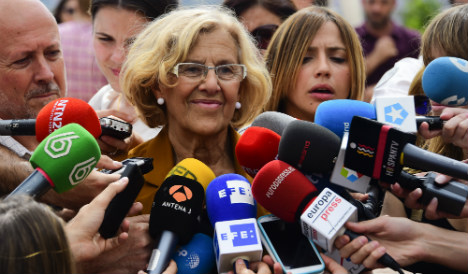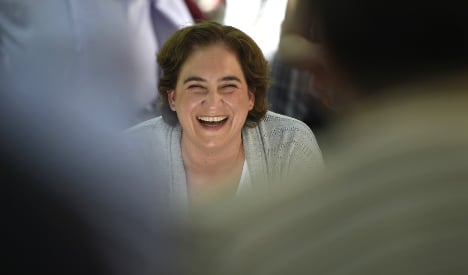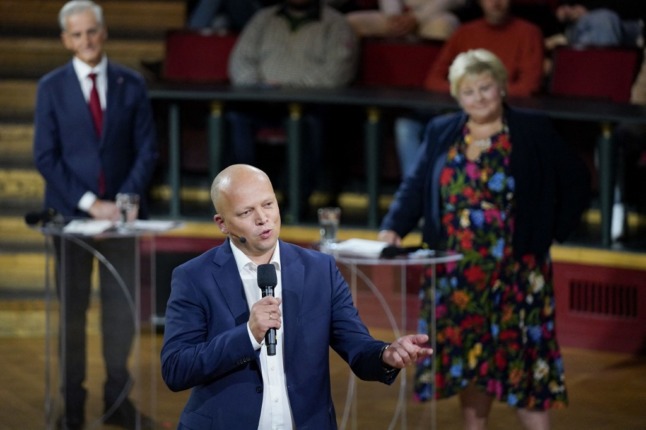Spain's three largest cities of Madrid, Barcelona and Valencia are among those that have swept traditional parties aside to be headed by mayors born of the protest movement.
Manuela Carmena, a 71-year-old retired judge,will become the next mayor of Madrid after her leftist Ahora Madrid protest party agreed a last minute alliance with the Socialist party.
With her promises to stamp out corruption, abolish evictions, increase subsidies for the poor and invest in public transport, Carmena, a former communist who opposed the Franco regime, secured an alliance to drive out the right wing PopularParty of the city stronghold it has controlled for 24 years.

Manuela Carmena of Ahora Madrid will be sworn in as mayor on Saturday. Photo: Pedro Almestre / AFP
Backed by the anti-austerity party Podemos which has shaken up Spanish politics, Ahora Madrid won 31.8 percent of the vote, giving it 20 seats in city hall, one less than Esperanza Aguirre, a former minister and countess by marriage.
Meanwhile in Barcelona, Spain’s second largest city, anti-eviction activist Ada Colau will become the new mayor on Saturday, after she ousted Xavier Trias of the Catalan region’s ruling CiU party.
In Valencia, Rita Barberá was kicked out of office ending 24 years as the Mediterranean city mayor after a tri-partite pact between the Socialists, Compromís and Podemos.
In smaller town halls across Spain the fragmented nature of the election results meant that pact making has been essential to securing government.
A deal between the PSOE and the United Left has seen the two parties agree to support each other to enable them to block out the PP in 277 town halls across Spain.
#ÚLTIMAHORA Susana Díaz, investida presidenta de Andalucía con el apoyo de Ciudadanos http://t.co/SL4UyhQ05w
— Antena3Noticias (@A3Noticias) June 11, 2015
Ciudadanos have also been king-makers, making a pact with the PSOE in the Andalusia region so that Susana Díaz finally won enough support to become First Minister on Thursday, 81 days after her party failed to win a majority in regional elections and after three attempts to form a government.
In Madrid, the centrist party led by Albert Rivera, made an agreement with the PP to support them in regional parliament, allowing Cristina Cifuentes to become president, as long as they promised certain conditions to combat corruption.
But the pact making could have serious consequences for the general elections to take place in November, with the electorate keeping a sharp eye on developments.



 Please whitelist us to continue reading.
Please whitelist us to continue reading.
Member comments